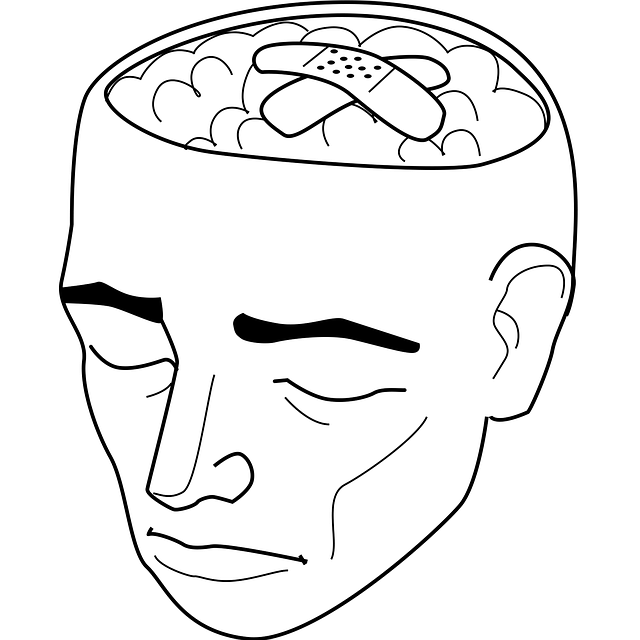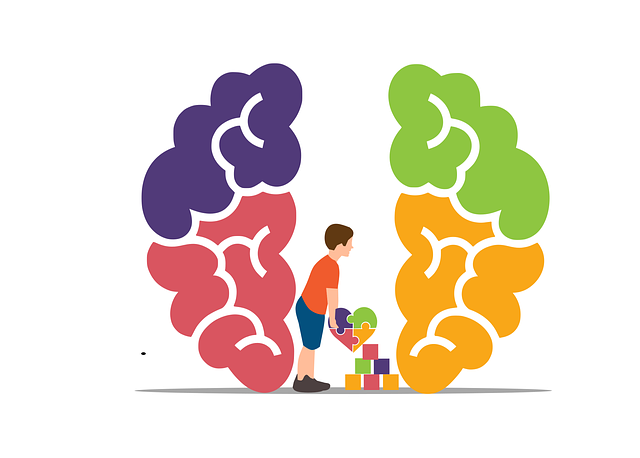Lafayette German Speaking Therapy emphasizes effective group facilitation for emotional healing. Facilitators create safe, inclusive spaces through trust-building techniques and active listening, ensuring all voices are heard. Strategic considerations like group size and structured agendas promote genuine connections. Drawing from resources and integrating trauma support services enhances the therapeutic experience, fostering resilience and peer support. This holistic approach combines open discussions, coping strategies, and risk assessments for optimal mental wellness, catering to diverse backgrounds and challenges.
Mental wellness group facilitation is an art that fosters healing and connection. In this article, we explore effective techniques for leading supportive group dynamics, focusing on creating safe spaces and encouraging open communication. We delve into the unique approach of Lafayette German Speaking Therapy, showcasing how group support can nurture resilience. By understanding mental wellness group intricacies, facilitators can guide members towards personal growth and a stronger sense of community, ultimately enhancing overall well-being.
- Understanding Mental Wellness Group Dynamics: Creating a Safe Space
- Facilitation Techniques for Effective Communication and Connection
- Lafayette German Speaking Therapy: Nurturing Resilience Through Group Support
Understanding Mental Wellness Group Dynamics: Creating a Safe Space

In the context of Lafayette German-speaking therapy, understanding mental wellness group dynamics is paramount to creating a supportive and therapeutic environment. Group facilitation techniques should prioritize establishing a safe space where individuals feel comfortable expressing their thoughts and emotions openly. This involves cultivating an atmosphere of trust, empathy, and non-judgmental acceptance among participants. By fostering a sense of belonging, facilitators enable members to connect on a deeper level, promoting active engagement and meaningful interactions that can significantly enhance therapeutic outcomes.
Creating this safe space requires careful consideration of group size, selection criteria, and structured yet flexible agendas. Incorporating elements from the Mental Wellness Podcast Series Production and tailored Mental Wellness Coaching Programs Development, facilitators can guide discussions on relevant topics while ensuring every voice is heard. Moreover, integrating Trauma Support Services into these groups can provide specialized care for those with complex needs, ultimately enriching the overall therapeutic experience and fostering a resilient community of support.
Facilitation Techniques for Effective Communication and Connection

Effective communication is a cornerstone of successful group facilitation, especially in a diverse setting like Lafayette German Speaking Therapy. Facilitators play a vital role in creating an inclusive environment where every participant feels heard and respected. Active listening skills are essential, encouraging all voices to be valued and ensuring no one feels marginalized. This involves mirroring body language, paraphrasing thoughts, and asking clarifying questions to foster open dialogue.
Additionally, using techniques like structured discussions, icebreakers, and group exercises can enhance connection among participants. Structured activities provide a framework for sharing experiences and fostering emotional well-being promotion techniques. Trauma support services benefit from these strategies, as they can help individuals process their stories in a safe, supportive environment. Burnout prevention strategies for healthcare providers can also be integrated, promoting not only professional resilience but also building stronger connections within the group.
Lafayette German Speaking Therapy: Nurturing Resilience Through Group Support

Lafayette German Speaking Therapy offers a unique and supportive environment for individuals seeking emotional healing processes through group facilitation. By bringing together people from diverse backgrounds who share similar challenges, this therapy approach leverages the power of community to foster resilience. In a safe and non-judgmental space, participants engage in open discussions, learn coping strategies, and exchange experiences—all essential aspects of mood management.
The group dynamic encourages peer support, where members inspire and motivate one another. Facilitators, skilled in mental health practices, guide the conversations while also conducting thorough risk assessments for mental health professionals to ensure the well-being of every participant. This holistic approach not only promotes individual growth but also creates a strong social network, enhancing overall mental wellness.
Mental wellness group facilitation is a powerful tool, as evidenced by Lafayette German Speaking Therapy’s success in nurturing resilience through supportive group dynamics. By understanding group dynamics and employing effective communication techniques, facilitators create safe spaces that foster connection and promote healing. These strategies, highlighted in this article, offer valuable insights into enhancing mental health support within groups, ultimately benefiting individuals on their journeys to well-being.














